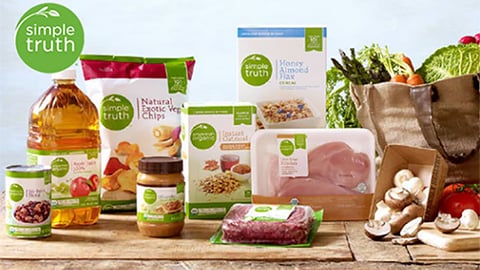Why Tiering in Private Label Matters
Tiering within private brands is an approach that grocers need to consider, according to experts at Wilton Conn.-based Cadent Consulting Group, who add that price shouldn’t be the only factor in creating different tiers.
“Similar to branded manufacturers’ tiering tactics, when retailers show the stratification of ‘good’ to ‘better’ to ‘best’ within their private label offerings, they allow themselves to more widely compete,” explains Karen Strauss, principal at Cadent. “In addition, it signals to consumers that some of their private label offerings are more premium, comparatively. This opens the retailer up to a wider shopper base by broadening appeal. Further, different tiers have different growth projections: Organic, an indicator of premium private label, is predicted to grow 7.7 percent annually over the next three years, much faster than the average of 4 percent. As such, retailers … should continue to leverage the USDA Organic seal as a ‘trustmark’ and effectively level the playing field with many national brands.”
For his part, Alex Smith, business analyst at Cadent, observes that tiering enables grocers to provide “premium items such as organic while also delivering value-oriented offerings.”
Strauss notes that if grocers employ a tiering strategy “to provide a differentiated offering both on the shelf and online,” along with a focus on quality, selection, value/price, packaging and design, and consumer needs and trends, their shoppers will come to perceive private label products “as successful and increasingly trustworthy competitors to national brands.”






